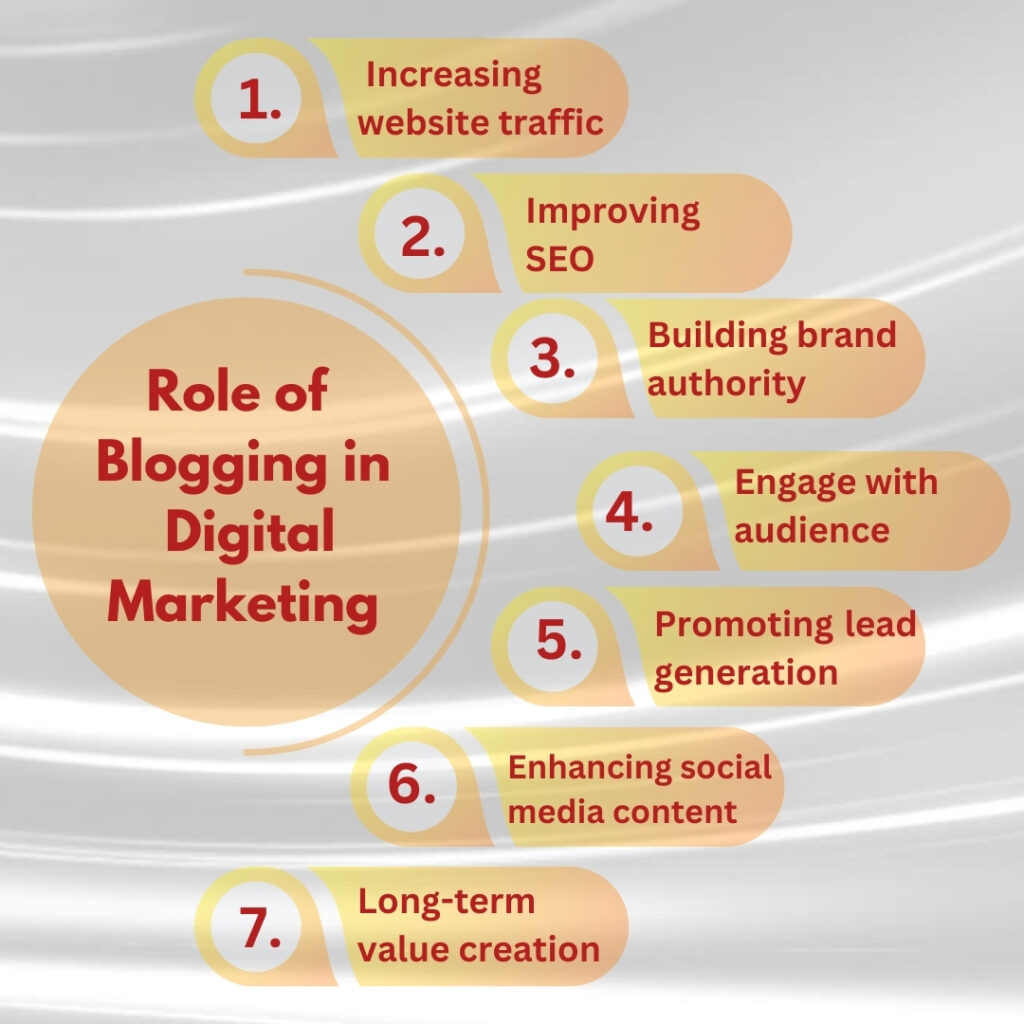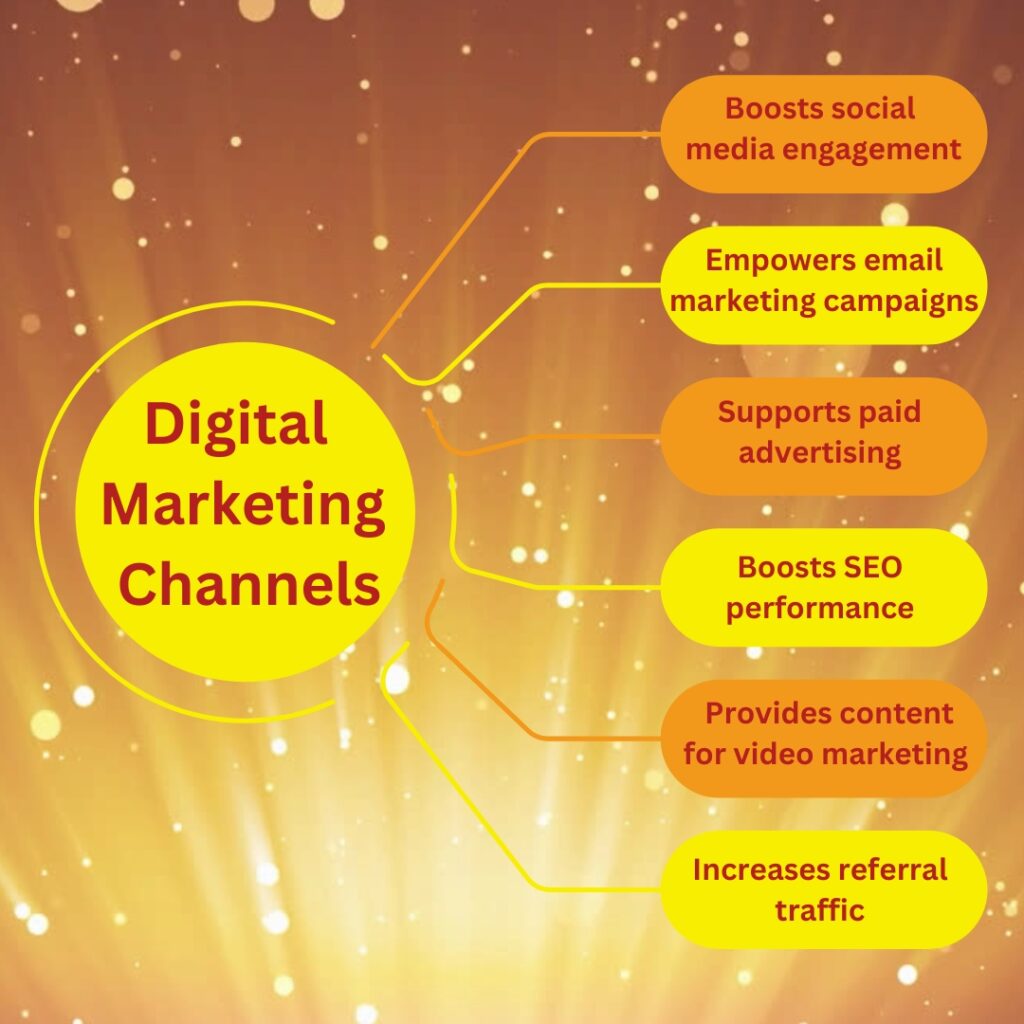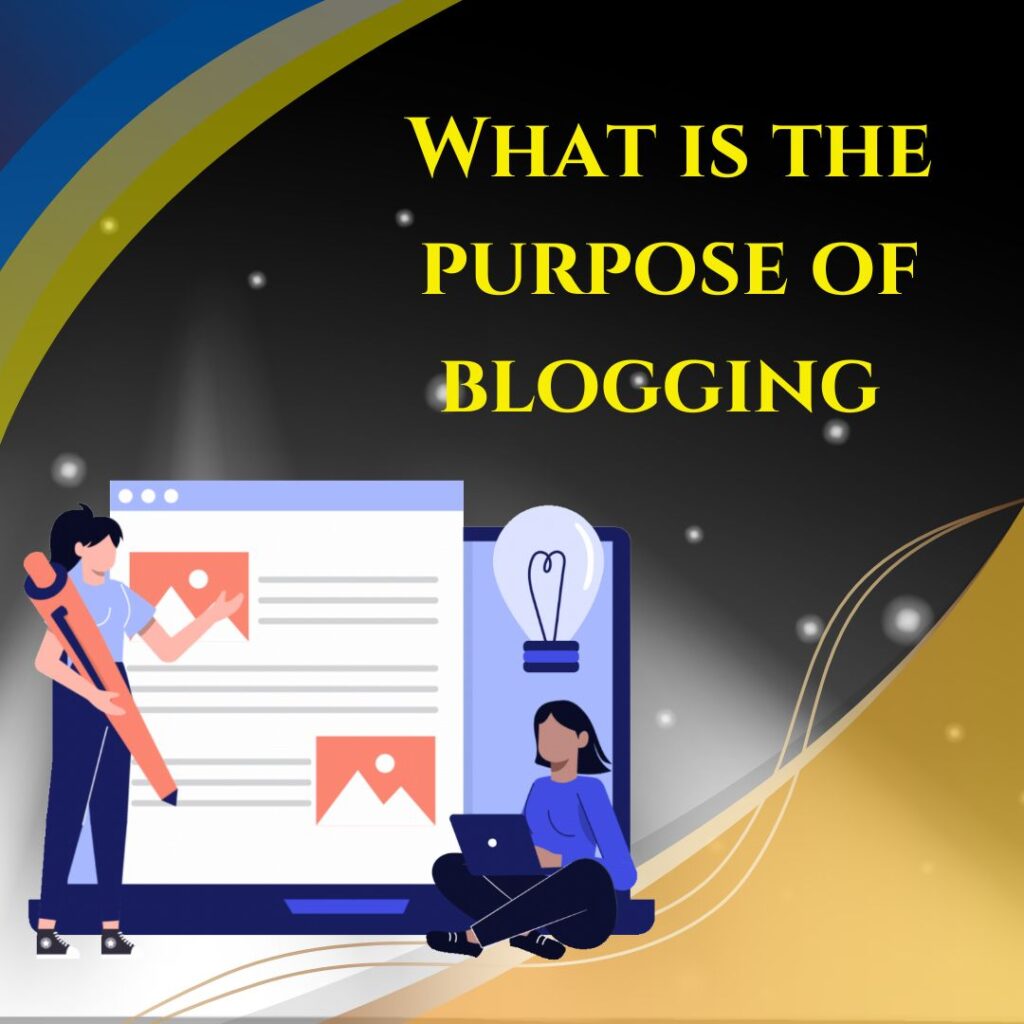Blogging is an important part of digital marketing in which a brand or individual shares written content on online platforms. The purpose of a blog post is to provide information, solutions or entertainment to the audience. It strengthens brand identity, attracts audiences and helps increase traffic to the website.
What is blogging
Blogging is the process of writing and publishing informative content on the Internet. This content is usually presented in the form of articles or posts. Initially, blogging emerged as a personal diary or hobby, but now it has become an important tool for businesses.

Blogs provide valuable and timely information to readers. It helps to engage audiences, establish brand authority, and provide useful information on a topic that is relevant to them.
Types of Blogging

- Personal Blogging: This is the most common form of blogging, where people share their thoughts, experiences, or personal stories. Its purpose may be to connect with readers or to present themselves through self-expression.
- Business Blogging: Companies use blogs to promote their products, services, and values. It provides useful and educative content to build strong relationships with consumers and increase their brand visibility.
- Niche Blogging: This type of blogging focuses on a particular interest or area, such as travel, fitness, or culinary arts. It targets readers who are looking for content with depth and expertise in this area.
- Affiliate Blogging: In this, bloggers share product reviews and recommendations and get a commission when readers buy their promoted products. This is an effective business model of blogging.
- Guest Blogging: Writing content for other blogs, which provides an opportunity to grow your readership, get backlinks for SEO, and be recognized as an expert in your field.
- Microblogging: Sharing short and concise posts on social media platforms such as Twitter and Instagram. It contains thoughts, advice, or personal updates that can be read and shared quickly.
- News Blogging: It provides readers with timely updates and analysis on the latest news and events in the relevant field. It is a great way to share information on trending topics.
Role of Blogging in Digital Marketing.

- Increasing website traffic: Regularly posting new content on a blog is an effective way to increase traffic to a website through search engines and social media.
- Building brand authority: Regular blogging presents your business as an expert. It helps build your audience’s trust and loyalty by providing informative content.
- Improving SEO: Blogs improve search engine rankings and increase website visibility through relevant keywords and regular content updates.
- Engage with audience: Blogging gives you the opportunity to connect with your target audience. By understanding their needs, answering questions, and providing useful advice, you can strengthen your brand.
- Promoting lead generation: Including a “call to action” (CTA) in a blog post can motivate readers to subscribe, sign up, or make a purchase.
- Enhancing social media content: Blog posts provide in-depth information to share on social media platforms, thereby increasing interactions and broadening your audience.
- Long-term value creation: Blog posts remain useful for a long time. They attract repeat traffic, generate leads and strengthen brand identity.
How does blogging support other digital marketing channels.

- Boosts social media engagement: Blog posts provide new and useful content for social media. It helps in sharing practical information and increasing website traffic, thereby strengthening overall digital marketing efforts.
- Empowers email marketing campaigns: By regularly posting educational and interesting content on blogs, it can be included in email campaigns. This keeps readers interested and motivates them to visit your website for more information.
- Supports paid advertising: Blogs can be used as landing pages for sponsored ads. It provides consumers with trustworthy and informative content, gradually moving them towards making a purchase.
- Boosts SEO performance: Blogging provides an opportunity to use selected keywords, which improves your website’s ranking in search engine results. It also complements other SEO strategies, allowing more people to find your business online.
- Provides content for video marketing: Blog posts can be converted into videos. This provides additional content for social media platforms like YouTube and Instagram and broadens the audience preferences.
- Increases referral traffic: Links provided by other blogs or websites to your blog’s informative content increase referral traffic to your website. This expands your audience circle and strengthens your overall digital marketing strategy.
What is the purpose of blogging?

The main purpose of blogging is to provide value to readers by sharing knowledge, ideas, and insights through engaging and well-written content. It promotes dialogue, trust building, and engagement with readers for both individuals and companies.
The following are the objectives of blogging in digital marketing:
- Sharing knowledge: Satisfying the curiosity of readers through useful and informative content.
- Promoting search engine optimization (SEO):Blogging is important for SEO as it provides keyword-based content that improves the ranking of the website.
- Generating organic traffic: Interesting and valuable content attracts more readers and brings organic traffic to the website.
- Establishing the brand as an expert: With regular blogging, any company or individual can establish expertise in their field.
- Increasing customer engagement: Blogs provide an opportunity to solve readers’ problems, answer questions, and give them useful advice.
- Brand exposure and trust building: Through useful content the company gains more recognition of its brand and builds trust among the readers.
- Contributes to business expansion: Blogging helps to attract potential customers and maintain relationships with existing customers, which ultimately helps to grow the business.
